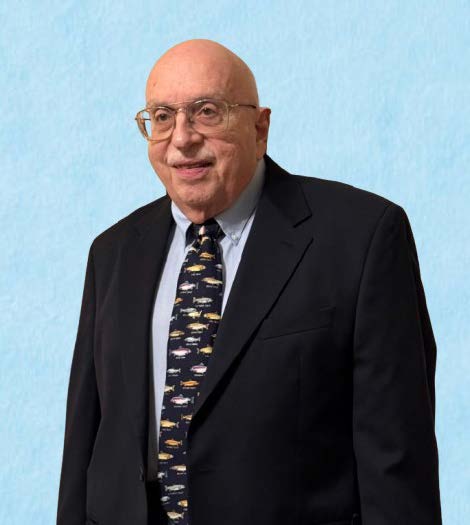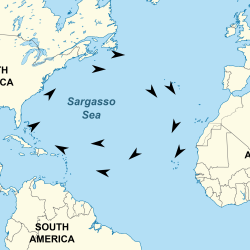Biology Professor Emeritus Arthur Popper Awarded Gold Medal from the Acoustical Society of America
The Acoustical Society of America (ASA) awarded University of Maryland Biology Professor Emeritus Arthur “Art” N. Popper its 2025 Gold Medal for his distinguished scientific achievements and unwavering service to the society.

Over the past six decades, Popper made significant and sustained contributions to the understanding of fish hearing and the effects of anthropogenic (human-generated) sound on aquatic life. His pioneering work fundamentally shaped the field of animal bioacoustics, earning him global recognition as one of its foremost authorities on fish hearing and bioacoustics.
Popper's academic journey began with an early fascination with fish auditory systems, which sparked a distinguished career. Popper made enduring contributions to the field during nine years each at the University of Hawai’i and Georgetown University and 38 years at UMD, where he served as professor and at various times as chair and associate dean.
His prolific scientific endeavors have resulted in over 300 peer-reviewed publications, each exploring diverse aspects of hearing and significantly advancing our understanding of fish auditory systems. His seminal discoveries include a groundbreaking paper in Science that provided the first detailed ultrastructural examination of the auditory regions in the inner ear of a fish species, offering critical insights into how hair cell morphology serves as the basis for sound source localization in fishes and sharks. Equally impactful is his work published in Nature on clupeid fishes (e.g., herrings, sardines and shad), which revealed that certain species of shad can detect and respond to ultrasound to well over 100 kHz, an extraordinary ability believed to be an evolutionary adaptation for evading echolocating predators such as dolphins.
Popper's investigations into the morphology and function of fish auditory systems have enhanced our understanding of the evolution of vertebrate hearing. His research on a wide range of species has provided insights into the structural and functional diversity of hearing capabilities across taxa.
Beyond academia, Popper addressed pressing environmental challenges through his pioneering studies on the impact of anthropogenic sounds, such as pile driving and seismic air guns, on aquatic life. These efforts have not only informed international guidelines but have also heightened global awareness of the ecological impact of underwater noise pollution.
In addition to his scientific contributions, Popper played a pivotal role in advancing auditory research through his editorial leadership. Notably, Popper has served as associate editor for several journals, including The Journal of the Acoustical Society of America (JASA), and as editor of Acoustics Today (2014–24).
One of Popper's major contributions has been as editor of 87 books on various aspects of hearing. Most notably, his editing of the "Springer Handbook of Auditory Research" (SHAR) (1989–2024), a series of books he co-founded in 1992 with his close friend and collaborator Richard R. Fay. The series launched with the landmark volumes "The Mammalian Auditory Pathway: Neuroanatomy" (volume 1) and "The Mammalian Auditory Pathway: Neurophysiology" (volume 2). Over the decades, the series has grown to encompass 77 volumes, with millions of downloads worldwide. This extraordinary reach has established SHAR as a cornerstone resource for auditory research, widely utilized by scientists and practitioners alike.
Additionally, Popper serves as senior editor for the influential Springer books on the "Effects of Noise on Aquatic Life." These volumes have not only been groundbreaking in their content but also immensely popular, with the first two volumes amassing over 1.1 million chapter downloads and views to date. Popper's editorial efforts have significantly shaped the dissemination of auditory and bioacoustics knowledge, ensuring that cutting-edge research is accessible to a global audience.
Popper's influence is not limited to the printed word. He has trained and mentored a generation of scientists who continue to advance bioacoustics research. Over the course of his career, he has mentored and inspired more than 40 Ph.D. students and postdoctoral fellows, many of whom have made contributions to the field of animal bioacoustics. Through his guidance, these individuals have not only advanced bioacoustics research but have also become leaders in academia, industry, and beyond. Popper's mentorship has fostered a thriving community of scholars whose collective work continues to redefine the field. His commitment to nurturing the intellectual growth of his mentees goes beyond teaching technical expertise; he instills a passion for discovery, a drive for innovation, and a deep sense of responsibility for scientific rigor. Through his support and encouragement, Popper has created a legacy that transcends his own achievements, embodied in the successes of those he has guided.
Beyond his scientific accomplishments, Popper has also been a steadfast leader within ASA. A valued member of the society for over 50 years, Popper was elected Fellow of ASA in 1995 in recognition of his exceptional “contributions to understanding hearing in aquatic animals.” Since 2014, he has served as editor of Acoustics Today, shaping the publication into a platform for disseminating knowledge across diverse areas of acoustics and to a broader lay audience. In addition, from 2016 to 2024, Popper served as the coordinating editor for the Animal Bioacoustics section of JASA, a position he held alongside his role as associate editor from 2013 to 2024. His editorial leadership has been instrumental in maintaining the journal’s reputation for academic rigor and relevance, particularly in the field of animal bioacoustics.
Popper's service to ASA extends far beyond his editorial roles. He has been an active member of the society’s Animal Bioacoustics Technical Committee, serving three terms (1991–98, 2006-09 and 2012-24), during which he provided invaluable guidance on advancing the study of animal bioacoustics. Through his leadership, dedication, and vision, Popper has significantly enriched ASA, ensuring its continued prominence as a leading professional society in acoustics. His sustained contributions have left an indelible mark on the organization and the field at large.
Despite his achievements, Popper is renowned for his humility, humor and kindness. Colleagues speak warmly of his ability to make even the most complex scientific concepts accessible and engaging. His infectious enthusiasm for discovery has inspired countless collaborators and enriched the scientific community.
Adapted from text written by Joseph Sisneros







